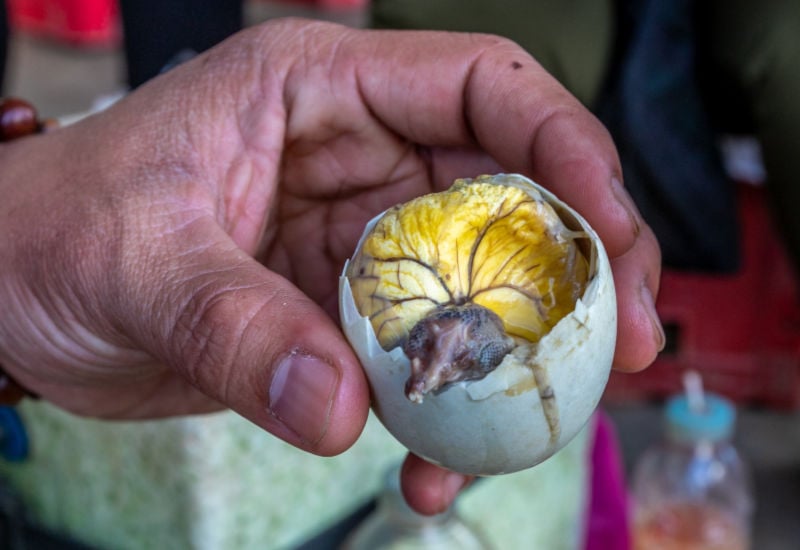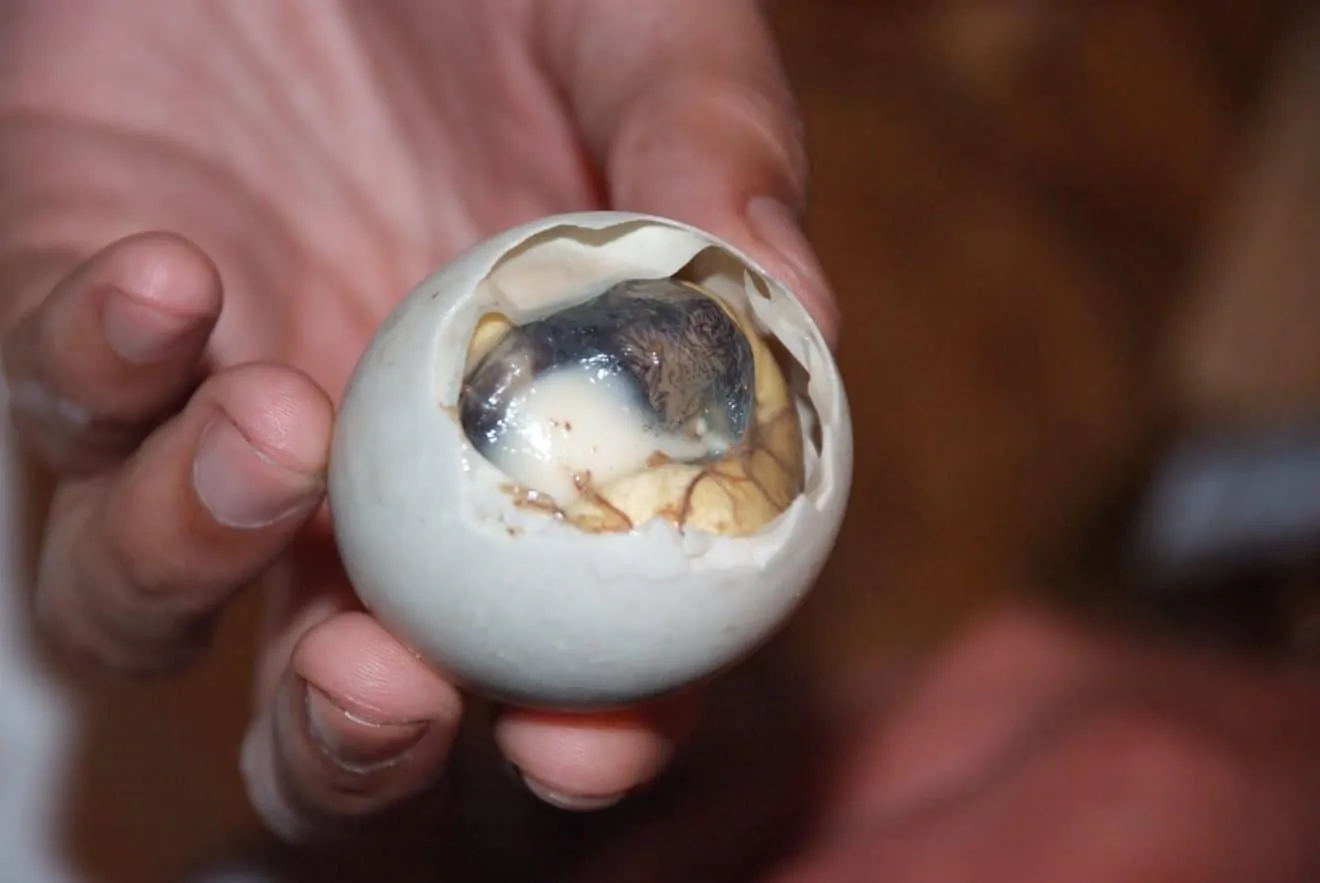Complete Guide To Balut Chicken Eggs: A Unique Culinary Experience
Balut chicken eggs are a delicacy that has captured the attention of food enthusiasts around the world. These fertilized eggs, typically incubated for 14 to 21 days, are a popular street food in many Southeast Asian countries, particularly in the Philippines. In this article, we will explore the fascinating world of balut, its preparation, nutritional value, and cultural significance. Whether you are a curious foodie or looking to expand your culinary horizons, this guide will provide you with all the information you need about this unique dish.
The experience of consuming balut is not just about tasting an exotic food; it is deeply rooted in tradition and culture. Each bite carries a story of craftsmanship, patience, and respect for the ingredients. The preparation of balut is an art form, and understanding this process can enhance your appreciation for this unique culinary experience. In this article, we will delve into the history of balut, how it is made, and why it remains a beloved dish in various cultures.
As we navigate through the different aspects of balut chicken eggs, we will also discuss the health benefits, the controversies surrounding its consumption, and tips for tasting this delicacy properly. By the end of this article, you will have a comprehensive understanding of balut and its place in the world of food.
- Exploring Countries That Start With X A Comprehensive Guide
- Exploring Abby From Chicken Little A Deep Dive Into Her Character And Impact
Table of Contents
- 1. The History of Balut Chicken Eggs
- 2. How Balut is Prepared
- 3. Nutritional Value of Balut Chicken Eggs
- 4. Cultural Significance of Balut
- 5. Health Benefits of Balut
- 6. Controversies Surrounding Balut
- 7. Tips for Tasting Balut
- 8. Conclusion
1. The History of Balut Chicken Eggs
Balut is believed to have originated in Southeast Asia, with its roots tracing back to the Philippines. The name "balut" is derived from the Filipino word that means "wrapped." The dish has a long-standing history, often associated with traditional practices of egg incubation and street food culture. Over the years, balut has evolved from a rural delicacy to a popular snack enjoyed by people from all walks of life.
1.1. Global Variations of Balut
While balut is most commonly associated with the Philippines, similar practices can be found in other countries:
- Vietnam: Known as "trứng vịt lộn," Vietnamese balut is often served with herbs and other condiments.
- China: In some regions, fertilized duck eggs are prepared in a similar manner and are known as "hundun."
- Cambodia: The dish is called "pong tia ko," often enjoyed with a spicy dipping sauce.
2. How Balut is Prepared
The preparation of balut is a meticulous process that requires skill and patience. It begins with selecting fertilized eggs, typically duck eggs, which are then incubated for a specific period. Here’s a step-by-step guide to how balut is prepared:
- Discover The Ultimate Footlong Cookie A Delicious Delight For Every Sweet Tooth
- Demi Lovato A Comprehensive Biography And Journey Through Music And Mental Health
2.1. Incubation Process
- Fertilized eggs are placed in an incubator, maintaining a steady temperature and humidity.
- The incubation period usually lasts between 14 to 21 days, depending on the desired development stage of the embryo.
- During this time, the eggs are regularly turned to ensure even development.
2.2. Cooking Balut
- Once the incubation period is complete, the eggs are boiled in water for about 20 to 30 minutes.
- After boiling, they are cooled and prepared for serving.
3. Nutritional Value of Balut Chicken Eggs
Balut chicken eggs are not only a unique culinary experience but also a source of nutrition. Below are some of the key nutritional benefits:
- High in protein: Balut contains a significant amount of protein, which is essential for muscle repair and growth.
- Rich in vitamins and minerals: Balut is packed with essential nutrients, including Vitamin A, Vitamin B, iron, and calcium.
- Healthy fats: The yolk of the balut contains healthy fats, which can contribute to a balanced diet.
4. Cultural Significance of Balut
In many Southeast Asian cultures, balut is more than just food; it is a symbol of tradition and community. It is often enjoyed during social gatherings, celebrations, and festivals. The act of sharing balut with friends and family fosters a sense of togetherness.
4.1. Street Food Culture
Balut is a quintessential street food, often sold by vendors in bustling markets and on street corners. The experience of enjoying balut in an open-air setting adds to its allure, making it a memorable culinary adventure for locals and tourists alike.
5. Health Benefits of Balut
In addition to its nutritional value, balut offers several health benefits. Some of these include:
- Boosting immunity: The vitamins and minerals found in balut can help strengthen the immune system.
- Supporting brain health: The presence of healthy fats and nutrients in balut may contribute to improved cognitive function.
- Energy source: The high protein content in balut makes it an excellent source of energy.
6. Controversies Surrounding Balut
Despite its popularity, balut has faced its share of controversies, particularly regarding ethical concerns and animal welfare. Critics argue that consuming fertilized eggs raises moral questions about animal rights.
6.1. Ethical Considerations
As the debate continues, many proponents of balut emphasize the importance of sourcing eggs from humane and responsible farms. This ensures that the practice aligns with ethical standards while still celebrating cultural traditions.
7. Tips for Tasting Balut
If you are new to balut and want to experience it authentically, here are some tips for tasting:
- Start by gently cracking the top of the egg to sip the flavorful broth inside.
- Add a sprinkle of salt or vinegar to enhance the taste.
- Take small bites to savor the different textures of the egg and embryo.
8. Conclusion
Balut chicken eggs are a unique delicacy that offers a glimpse into the rich culinary traditions of Southeast Asia. From its historical roots to its cultural significance, balut is more than just food; it is a celebration of life, community, and tradition. Whether you are a seasoned foodie or a curious newcomer, trying balut can be a memorable adventure.
We invite you to share your thoughts on balut in the comments below. Have you tried it, or are you considering giving it a go? Feel free to share this article with fellow food enthusiasts or explore more about culinary delights around the world on our site!
Thank you for reading, and we hope to see you again soon for more exciting culinary explorations!



Detail Author:
- Name : Dr. Lila Johnston
- Username : armstrong.filomena
- Email : gisselle.mante@gmail.com
- Birthdate : 1994-09-26
- Address : 1235 Mosciski Views South Anabelle, VT 62813-9751
- Phone : 940.900.2096
- Company : Fisher PLC
- Job : Drafter
- Bio : Sit animi non vero impedit nostrum. Quia esse iste rerum. Corporis sit quia nihil impedit ea eum. Vel debitis voluptas officia numquam illo sunt maiores.
Socials
twitter:
- url : https://twitter.com/clifford_xx
- username : clifford_xx
- bio : Soluta deserunt ut magnam recusandae sequi voluptas et ea. Ab eos numquam deserunt in. Explicabo id ullam velit facere similique facere aperiam nostrum.
- followers : 3620
- following : 1120
instagram:
- url : https://instagram.com/herman2001
- username : herman2001
- bio : Quibusdam accusantium ut a exercitationem voluptatum. Minus magni eligendi nulla distinctio et.
- followers : 2648
- following : 1981
tiktok:
- url : https://tiktok.com/@cliffordherman
- username : cliffordherman
- bio : Odio accusantium necessitatibus voluptatem id rem.
- followers : 1767
- following : 2039